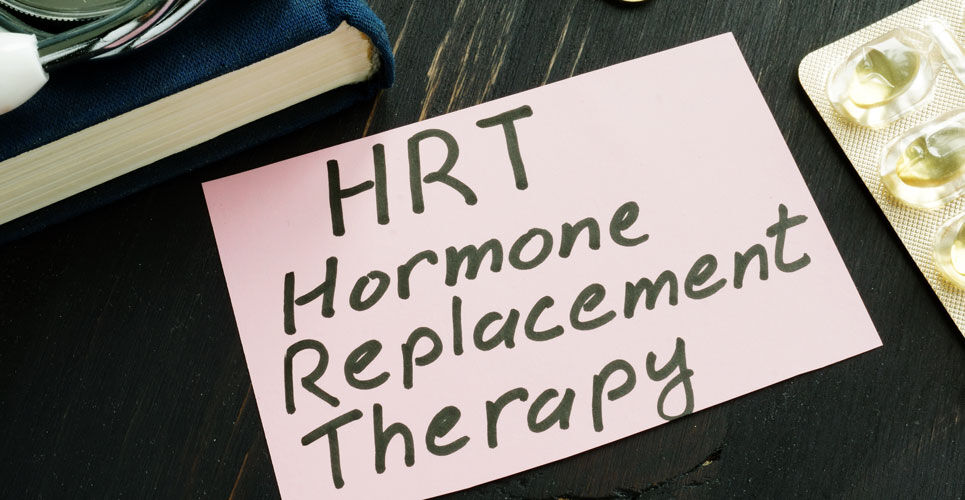Oestrogen mono-therapy appears to be linked with a lower risk of all-cause mortality as well as from several different types of cancer
Oestrogen mono-therapy has been found to be associated with a reduced risk of all-cause mortality and from several forms of cancer in women aged 65 years and older when prescribed for the management of menopausal symptoms according to the results of an observational study by researchers from the National Institutes of Health, Maryland, U.S.A.
The Women’s Health Initiative (WHI) was established to define the risks and benefits of strategies that could potentially reduce the incidence of heart disease, breast and colorectal cancer, and fractures in postmenopausal women. Between 1993 and 1998, 16608 postmenopausal women aged 50-79 years with an intact uterus at baseline were recruited by 40 US clinical centers into a randomised trial that compared conjugated equine oestrogens and medroxyprogesterone acetate (progestin) or placebo. The primary outcome of the study was coronary heart disease with invasive breast cancer as the primary adverse outcome. After a mean of 5.2 years of follow-up, the trial was terminated because the overall health risks exceeded benefits from use of combined oestrogen plus progestin. These findings were of great concern to clinicians and patients alike, instilling a level of fear over the use of hormonal therapy. However, he WHI trial studied only examined oral conjugated oestrogen alone and in combination with a progestin. Thus, whether oestrogen mono-therapy at either different doses and formulations would not lead to unfavourable outcomes is unclear.
As a result, for the present study, researchers turned to the U.S. Centers for Medicare and Medicaid Services (CMS) Virtual Research Data Center which provides information on hormonal therapy exposure and outcome data e.g., mortality, cardiovascular and cancer. Using this database, the US team were able to examine the effect of hormonal therapy on outcomes for older, postmenopausal women. They collected data on the type and route of hormonal therapy such as oral, transdermal, vaginal and injectable and limited their analysis to prescriptions for menopausal symptoms. They used several outcomes including all-cause mortality, death from five cancers (breast, lung, endometrial, colorectal, and ovarian) and cardiovascular outcomes including ischaemic heart diseases, heart failure, venous thromboembolism stroke, atrial fibrillation and acute myocardial infarction.
Oestrogen mono-therapy and outcomes
A total of 7,036,466 individuals with a median age of 64 years at entry were included, 1,082,525 of whom were hormone replacement therapy users and who were followed for a period of 13 years.

The use of oestrogen mono-therapy overall, was associated with a significant 20% reduced mortality risk compared to non-use of hormonal therapy (Hazard ratio, HR = 0.80, 95% CI 0.78-0.82). This reduction was greater with oestradiol (HR = 0.78, 95% CI 0.75- 0.80) but higher for conjugated oestrogen (HR = 0.86, 95% CI 0.85-0.88) and oral oestrogen (HR = 0.89). However, both vaginal (HR = 0.69) and transdermal (HR = 0.78) preparations provided a similar level of risk reduction.
For the different cancers, oestrogen mono-therapy was associated with a significant reduction for all of the five cancers studied, e.g., breast (HR = 0.82), lung (HR = 0.87) and ovarian (HR = 0.83). Nevertheless, oestrogen mono-therapy slightly elevated the risk of ischaemic heart disease (HR = 1.03, 95% CI 1.01 – 1.04) though interestingly, this effect was not observed for low dose mono-therapy.
Both combined therapy (i.e., oestrogen and a progestin) significantly increased the risk of breast cancer (HR = 1.11, 95% CI 1.08 – 1.14).
The authors concluded that while their study was observational in nature, it did raise the possibility that oestrogen mono-therapy is associated with a survival benefit and lower risk of cancer.
Citation
Baik SH et al. Effects of Hormone Therapy on survival, cancer, cardiovascular and dementia risks in 7 million menopausal women over age 65: a retrospective observational study MedRxiv 2022

